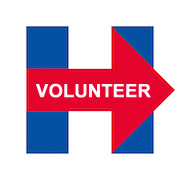Yesterday,
at Nancy Reagan’s funeral, I said something inaccurate when speaking
about the Reagans’ record on HIV and AIDS. Since then, I’ve heard from
countless people who were devastated by the loss of friends and loved
ones, and hurt and disappointed by what I said. As someone who has also
lost friends and loved ones to AIDS, I understand why. I made a mistake,
plain and simple.
I want
to use this opportunity to talk not only about where we’ve come from,
but where we must go in the fight against HIV and AIDS.
To
be clear, the Reagans did not start a national conversation about HIV
and AIDS. That distinction belongs to generations of brave lesbian, gay,
bisexual, and transgender people, along with straight allies, who
started not just a conversation but a movement that continues to this
day.
The AIDS crisis in
America began as a quiet, deadly epidemic. Because of discrimination and
disregard, it remained that way for far too long. When many in
positions of power turned a blind eye, it was groups like ACT UP, Gay
Men’s Health Crisis and others that came forward to shatter the
silence — because as they reminded us again and again, Silence = Death.
They
organized and marched, held die-ins on the steps of city halls and
vigils in the streets. They fought alongside a few courageous voices in
Washington, like U.S. Representative Henry Waxman, who spoke out from
the floor of Congress. Then there were all the people whose names we
don’t often hear today — the unsung heroes who fought on the front lines
of the crisis, from hospital wards and bedsides, some with their last
breath.
Slowly, too
slowly, ignorance was crowded out by information. People who had once
closed their eyes opened their hearts. If not for those advocates,
activists, and ordinary, heroic people, we would not be where we are in
preventing and treating HIV and AIDS. Their courage — and their refusal
to accept silence as the status quo — saved lives.
We’ve
come a long way. But we still have work to do to eradicate this disease
for good and to erase the stigma that is an echo of a shameful and
painful period in our country’s history. This issue matters to me
deeply. And I’ve always tried to do my part in the fight against this
disease, and the stigma and pain that accompanies it. At the 1992
Democratic National Convention, when my husband accepted the nomination
for president, we marked a break with the past by having two
HIV-positive speakers — the first time that ever happened at a national
convention.
As First Lady,
I brought together world leaders to strategize and coordinate efforts
to take on HIV and AIDS around the world. In the Senate, I put forward
legislation to expand global AIDS research and assistance and to
increase prevention and education, and I proudly voted for the creation
of PEPFAR and to defend and protect the Ryan White Act. And as secretary
of state, I launched a campaign to usher in an AIDS-free generation
through prevention and treatment, targeting the populations at greatest
risk of contracting HIV.
The
AIDS crisis looks very different today. There are more options for
treatment and prevention than ever before. More people with HIV are
leading full and happy lives. But HIV and AIDS are still with us. They
continue to disproportionately impact communities of color, transgender
people, young people and gay and bisexual men. There are still 1.2
million people living with HIV in the United States today, with about
50,000 people newly diagnosed each year. In Sub-Saharan Africa, almost
60 percent of people with HIV are women and girls. Even though the tools
exist to end this epidemic once and for all, there are still far too
many people dying today.
That is absolutely inexcusable.
I
believe there’s even more we can — and must — do together. For
starters, let’s continue to increase HIV and AIDS research and invest in
the promising innovations that research is producing. Medications like
PrEP are proving effective in preventing HIV infection; we should expand
access to that drug for everyone, including at-risk populations. We
should call on Republican governors to put people’s health and
well-being ahead of politics and extend Medicaid, which would provide
health care to those with HIV and AIDS.
We
should call on states to reform outdated and stigmatizing HIV
criminalization laws. We should increase global funding for HIV and AIDS
prevention and treatment. And we should cap out-of-pocket expenses and
drug costs—and hold companies like Turing and Valeant accountable when
they attempt to gouge patients by jacking up the price of lifesaving
medications.
We’re still
surrounded by memories of loved ones lost and lives cut short. But we’re
also surrounded by survivors who are fighting harder than ever.
We
owe it to them and to future generations to continue that fight
together. For the first time, an AIDS-free generation is in sight. As
president, I promise you that I will not let up until we reach that
goal. We will not leave anyone behind.


